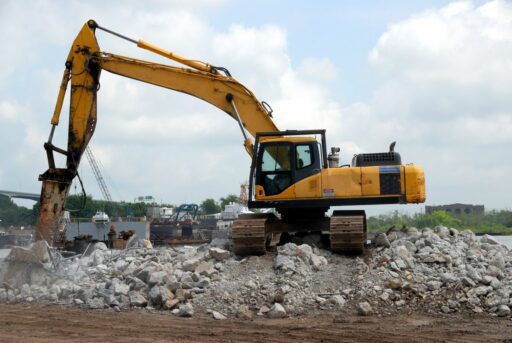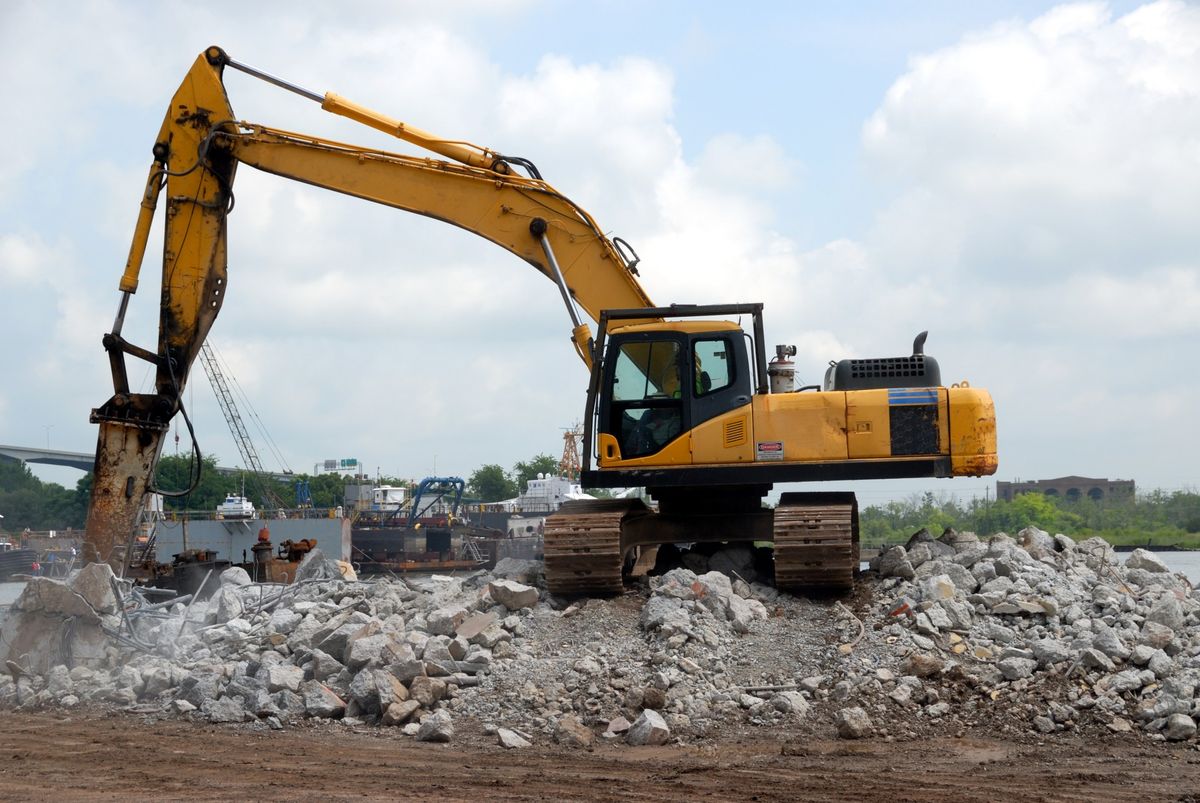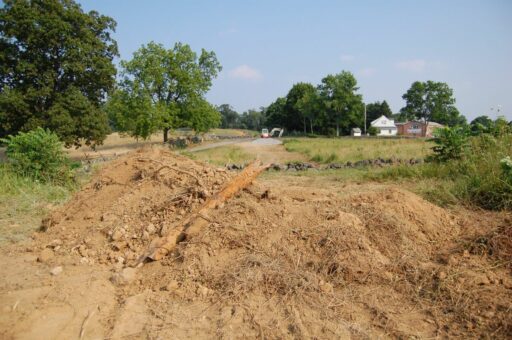Hiring a demolition contractor is a critical decision that requires careful consideration. Whether you’re planning to tear down a house, a commercial building, or any other structure, it’s essential to choose a professional who can complete the job safely and efficiently. To assist you in making an informed choice, this article presents 10 crucial questions you should ask before hiring demolition contractors. These questions will help you evaluate a contractor’s qualifications, understand the legal and environmental implications, and ensure that the demolition process goes as smoothly as possible.
Key Takeaways
- Verify the contractor’s licensing and certification to ensure they are legally authorized to perform demolition work.
- Understand the permit requirements for your demolition project to avoid legal complications and ensure compliance with local regulations.
- Inquire about the contractor’s pre-demolition planning process to assess their ability to manage the project efficiently.
- Discuss environmental considerations and how the contractor plans to mitigate any potential harm to the surrounding ecosystem.
- Consider the community impact and how the contractor intends to minimize disruption to nearby residents and businesses.
1. Licensing and Certification

Before hiring a demolition contractor, it’s crucial to verify their licensing and certification. This ensures that the contractor is legally authorized to perform demolition work and adheres to industry standards. Check for key requirements such as financial capability, relevant technical personnel, company certifications, and a solid track record.
- Financial capability: Look for valid audited accounts, paid-up capital, and net worth.
- Relevant technical personnel: Ensure they are full-time employed with technical qualifications and valid licenses.
- Company certifications: Seek out certifications like ISO45001, Bizsafe, GGBS, etc.
- Track record: Request documentation proof of valid projects, endorsed and assessed by clients.
It is essential to confirm that the contractor holds the necessary builder licenses, such as CW01 for General Building and CW02 for Civil Engineering, which are indicative of their capability to handle various grades of construction work.
Remember, a licensed demolition company not only guarantees safety but also typically manages the permitting process, helping you navigate through local building department requirements with less frustration.
2. Permit Requirements

Before embarking on a demolition project, it’s crucial to understand the permit requirements that apply to your specific situation. Demolition permits are a legal necessity and ensure that the project adheres to local building codes and safety regulations.
To obtain a demolition permit, you will typically need to provide evidence of your contractor’s financial capability, such as valid audited accounts, and confirm that they have the necessary technical qualifications and company certifications, like ISO45001 or Bizsafe. A proven track record with documentation proof is also often required.
Remember, licensed demolition companies are usually well-versed in local regulations and can often handle the permitting process on your behalf, saving you from the potential hassle of dealing with local authorities.
The application process for permits can vary, but generally, it must be done through official channels such as the Electronic Builders Licensing and Companies Registration Systems (eBACS). Be prepared to fill out various forms related to company information, track records, and technical personnel. Regulations can change, and in some cases, local governments may have more stringent rules than federal requirements. Always contact your state or local environment agency to clarify currently applicable regulations.
3. Pre-Demolition Planning

Effective pre-demolition planning is crucial for a successful and safe demolition project. This phase involves a thorough assessment of the site and the development of a strategic plan that addresses all potential challenges. Key considerations should include the identification of harmful materials, understanding the impact on the community, and ensuring compliance with all relevant regulations.
During this stage, it’s essential to engage with stakeholders and outline the steps for the demolition process. This will help you know which questions to ask before proceeding with a demolition contractor. Be sure to ask your contractor for a detailed removal plan.
Here are some important aspects to consider in your pre-demolition planning:
- Evaluation of environmental issues and potential hazards
- Community involvement and communication strategies
- Pre-demolition inspections to assess the structure
- Selection and oversight of demolition contractors
- Opportunities for deconstruction, reuse, and recycling of materials
Remember, a well-planned demolition can mitigate risks and ensure that the project is completed efficiently and responsibly.
4. Environmental Considerations

When hiring demolition contractors, environmental responsibility is a critical factor. The process of demolition can have significant impacts on the environment, including the release of harmful materials and debris. It’s essential to ensure that the contractor is well-versed in managing these risks and complies with all applicable environmental regulations.
Before demolition begins, a thorough plan should be in place to address potential environmental issues. This includes identifying and properly handling asbestos-containing materials (ACM), managing stormwater and dust, and considering opportunities for the reuse and recycling of materials. Regulations can change, and local governments may have more stringent requirements than federal ones, so staying informed is key.
The selection of a demolition contractor should prioritize not only their ability to efficiently dismantle structures but also their commitment to minimizing environmental harm.
Remember, while the Environmental Protection Agency (EPA) provides guidelines on environmental practices, the Occupational Safety and Health Administration (OSHA) is the primary federal agency responsible for worker health and safety. Therefore, it’s important to consider both environmental and worker safety when selecting a contractor.
5. Community Impact

Demolition projects can significantly affect the surrounding community, from noise and dust to traffic disruptions. It’s crucial to assess and mitigate these impacts to maintain good relations and comply with local regulations.
- Noise and Dust: Implement noise barriers and dust suppression methods.
- Traffic: Coordinate with local authorities to manage traffic flow.
- Safety: Ensure public safety with clear signage and barriers.
Engaging with the community early on can lead to a smoother project with fewer complaints and delays.
Consider the potential for material reuse and recycling, which can reduce waste and benefit the community. For example, salvaged materials can be donated to local organizations or sold to offset project costs. Additionally, planning for the least disruptive times for demolition can minimize the impact on residents’ daily lives.
6. Inspection Protocols

Before demolition begins, it’s crucial to understand the inspection protocols that will be in place. Inspections ensure compliance with safety and regulatory standards, and they help identify potential issues before they become major problems. Here are some key points to consider when discussing inspection protocols with your demolition contractor:
- The frequency and types of inspections that will be conducted.
- The qualifications of the inspectors.
- The specific standards and regulations that the inspections will aim to enforce.
- The process for addressing any issues or violations found during inspections.
It is essential to establish clear communication channels between the contractor and the inspection team to facilitate a smooth and compliant demolition process.
Additionally, ask for a documented inspection plan that outlines all the necessary steps and requirements. This plan should detail the scope of the inspections, including structural assessments and environmental evaluations. Ensure that the contractor is transparent about their inspection procedures and willing to work with you to address any concerns.
7. Contractor Selection

Selecting the right demolition contractor is crucial for the success of your project. Ensure the contractor has relevant experience and expertise in the type of demolition you require. It’s important to verify their credentials, including permits and licenses, to confirm they are qualified to undertake the project.
When interviewing potential contractors, consider the following questions:
- How long has your company been in business?
- Can you provide references from past demolition projects?
- Are you licensed and insured for demolition work?
- What is your safety record like?
- How do you handle unexpected challenges during demolition?
Remember, the lowest bid may not always signify the best value. Weigh the contractor’s experience, safety record, and proposed timeline against the cost.
The importance of geotechnical assessments cannot be overstated, as they ensure the stability of the site post-demolition. Ask the contractor about their approach to such assessments and how they plan to manage the debris and recycling of materials.
8. Cost Estimation

Understanding the cost of demolition is crucial to ensure your project stays within budget. Ask for a detailed cost estimate from potential contractors to avoid unexpected expenses. This estimate should include all aspects of the demolition process, from labor to disposal fees.
When evaluating cost estimates, consider the following factors:
- Permit costs in your area
- Building material disposal method
- Machinery rental costs
- Lot size
- Proximity to nearby structures
It’s important to compare quotes from multiple contractors to ensure you’re getting a fair price. Remember, the lowest bid isn’t always the best choice if it compromises on quality or safety.
Ensure that the cost estimate is comprehensive and accounts for potential contingencies. This can prevent disputes and additional charges as the project progresses.
Finally, inquire about the contractor’s experience with similar projects and their process for handling unexpected issues. A contractor who brings in experts, such as engineers, to finalize cost estimates may provide more accurate pricing and a smoother project flow.
9. Material Disposal

When it comes to material disposal, it’s crucial to understand the contractor’s approach to handling debris. Ask about the types of materials they will remove and their methods for disposal. Will they recycle or donate usable materials? This not only impacts the environment but can also affect the overall cost of the project.
Proper disposal of materials is essential to minimize environmental harm and comply with local regulations.
Consider the following points when discussing material disposal with your demolition contractor:
- The types of harmful materials and debris they will handle.
- Their plan for environmental issues related to disposal.
- Opportunities for reuse and recycling of materials.
- Compliance with state and local regulations.
Remember to inquire about permit costs, disposal methods, and any additional fees that may apply to your specific project.
10. Safety Measures

Ensuring the safety of both the demolition team and the surrounding community is paramount. Safety measures must be meticulously planned and executed to prevent accidents and injuries. Construction safety contractors prioritize safety through leadership commitment, site-specific strategies, culture cultivation, task sequencing, subcontractor partnerships, and technology integration.
Safety protocols are not just a checklist but a comprehensive approach that encompasses everything from traffic management to the handling of hazardous materials. It’s essential to understand the specific safety codes and procedures relevant to the demolition project.
Compliance with regulations is critical, and it’s important to stay updated with any changes, especially in emergency situations or when dealing with harmful materials and debris. Local governments may have additional regulations, making it necessary to contact state or local environmental agencies for clarification.
Below is a list of key safety considerations for demolition contractors:
- Traffic safety and management
- Handling and removal of hazardous materials
- Adherence to safety codes and procedures
- Management of stormwater and dust
- Planning for disaster debris
- Reuse and recycling of materials
Conclusion
Choosing the right demolition contractor is crucial for the success and safety of your project. By asking the right questions about licensing, permits, environmental considerations, and the specifics of the demolition process, you can ensure that you select a company that is capable and trustworthy. Remember that demolition is a complex task that often requires professional expertise, especially when dealing with larger structures or those close to other properties. Always prioritize safety, compliance, and proper disposal methods when planning your demolition project. With the information provided in this article, you’re now equipped to make an informed decision and proceed with confidence.
Frequently Asked Questions
Do demolition companies need to be licensed?
Yes, demolition companies typically need to be licensed to operate legally. The specific licensing requirements may vary by location, so it is important to confirm that the contractor you are considering is properly licensed in your area.
Do I need permits before doing demolition?
In most cases, permits are required before commencing demolition work. These permits ensure that the demolition is conducted in compliance with local regulations and safety standards.
What are the key steps to become a demolition worker?
Becoming a demolition worker usually involves obtaining the necessary training and certifications, gaining experience in the field, and adhering to safety protocols. It may also require obtaining a specific license, depending on the jurisdiction.
How do I plan for environmental issues during demolition?
Planning for environmental issues involves conducting pre-demolition inspections to identify harmful materials, involving the community in the demolition process, and ensuring the proper disposal of debris in accordance with state and local programs.
How do I hire a demolition company?
To hire a demolition company, select one that specializes in the type of project you have. Obtain several price quotes detailing deconstruction, carting, and cleanup costs. Ensure the company will obtain the necessary permits and clarify the scope of their services.
Can I do my own demolition?
While it’s possible to undertake small-scale demolition projects like dismantling a shed, larger projects should always be handled by professionals. Demolition can be dangerous and usually requires permits, heavy machinery, and adherence to safety protocols.





